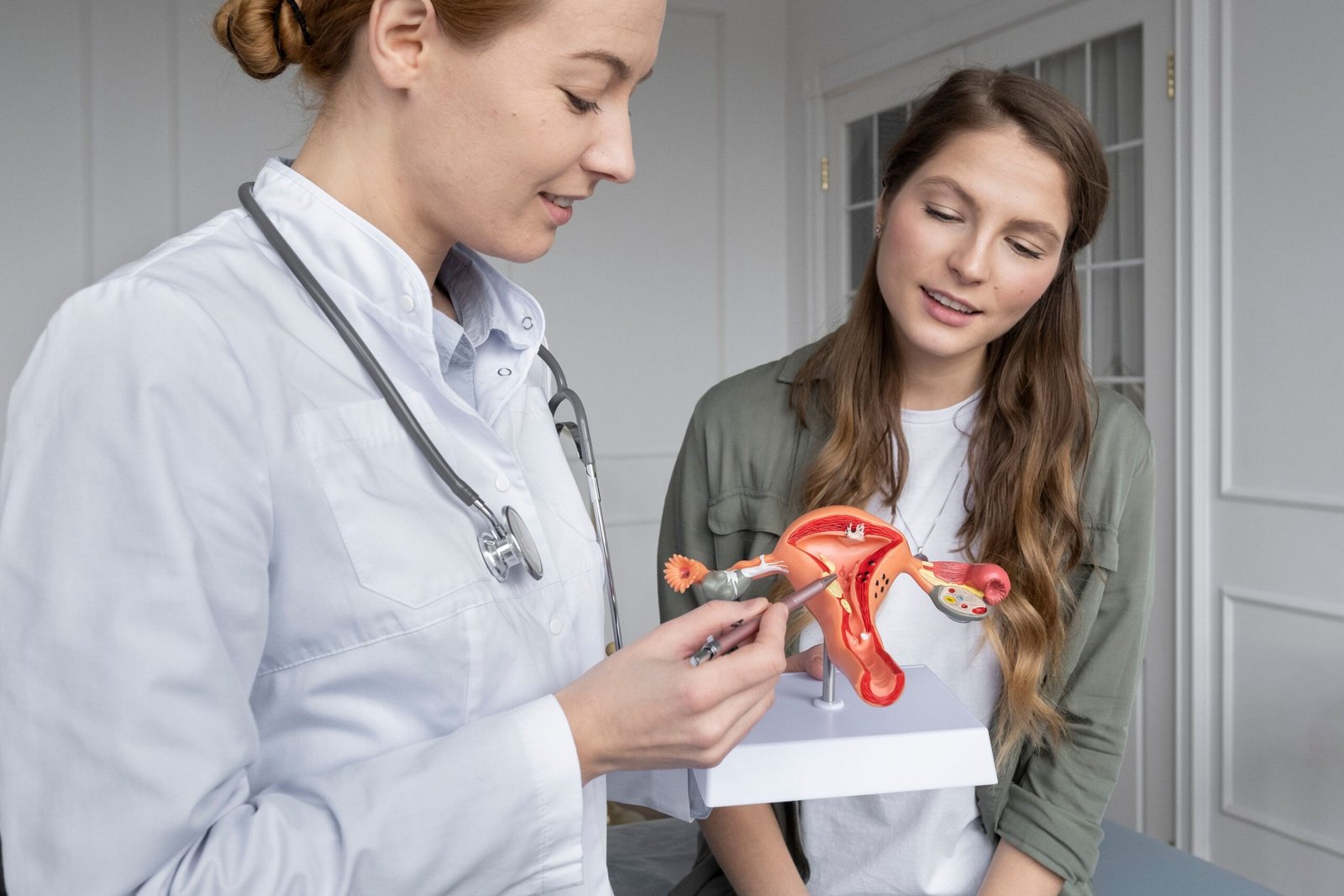Are you suffering from irregular periods or severe acne or facial hair growth?: That might be a sign of PCOS or PCOD!
Are you struggling with irregular periods, severe acne, or unwanted facial hair growth? These symptoms could be more than just minor annoyances—they might be signs of a condition known as PCOS or PCOD. But what exactly do these terms mean, and how do they differ?
PCOD vs. PCOS: What’s the Difference?
PCOD (Polycystic Ovarian Disease) and PCOS (Polycystic Ovarian Syndrome) are both related to the ovaries and hormonal imbalances, but they are distinct conditions.
PCOD is characterized by enlarged ovaries that fail to release eggs properly. This leads to the accumulation of premature eggs, which then turn into cysts. Common contributing factors to PCOD include:
- Poor Diet: Frequent consumption of junk food and refined carbohydrates.
- Obesity: Being overweight can exacerbate the condition.
- Stress: High stress levels can disrupt hormonal balance.
- Sedentary Lifestyle: Lack of physical activity contributes to the condition.
- Restlessness: General lifestyle factors can impact ovarian health.
PCOD is relatively common, affecting approximately 30% of women, but it often goes undiagnosed because its symptoms can be mild.
PCOS, however, is a more severe condition and is classified as a metabolic disorder. In PCOS, the ovaries do not produce eggs regularly due to elevated levels of testosterone caused by hormonal imbalances. Key factors associated with PCOS include:
- Genetics: A family history of PCOS can increase the risk.
- Insulin Resistance: Difficulty in utilizing insulin effectively can lead to excess insulin and higher testosterone levels.
- Inflammation: Chronic inflammation in the body may play a role.
- Stress: Similar to PCOD, stress can worsen symptoms.
PCOS is less common, affecting around 10% of women globally. Its symptoms tend to be more severe and can include:
- Irregular Periods: Heavy bleeding when periods do occur.
- Hair Thinning and Loss: Noticeable changes in hair density.
- Acne: Persistent and severe acne.
- Headaches: Frequent or intense headaches.
- Hirsutism: Excessive facial hair growth.
- Skin Darkening: Dark patches in areas like the neck, armpits, and groin.
- Weight Gain: Difficulty maintaining a healthy weight.
- Infertility: Challenges with conceiving.
Managing PCOD and PCOS
Although PCOD and PCOS differ in severity and impact, both conditions benefit from a proactive approach to diet and lifestyle. Here’s how you can manage these conditions effectively:
Diet Tips:
- Prioritize Whole Foods: Focus on fresh, whole foods and avoid refined carbohydrates (like white rice, bread, and pasta), processed foods, and sugary items.
- Incorporate Anti-Inflammatory Foods: Consume leafy greens such as spinach and kale, berries with low glycemic indices, and foods rich in omega-3s, such as fatty fish, olive oil, and seeds.
- Boost Fiber Intake: Include high-fiber vegetables like broccoli, pumpkin, beans, sweet potatoes, and lentils. Add healthy fats from sources like avocados, nuts, and olive oil.
- Eat Smaller, Frequent Meals: Instead of three large meals, aim for 4-6 smaller meals throughout the day. This helps regulate blood glucose levels and prevents cravings.
- Stick to a Routine: Maintain consistent meal times and avoid skipping meals to stabilize blood sugar levels and support proper hormone production.
Exercise Recommendations:
Regular physical activity is crucial in managing PCOS and its associated risks. Effective exercises include:
- High-Intensity Interval Training (HIIT): Boosts metabolism and helps manage weight.
- Yoga: Improves flexibility, reduces stress, and enhances overall well-being.
- Strength Training: Builds muscle mass, which can improve insulin sensitivity.
Stress Management:
Since stress can disrupt hormonal balance and exacerbate symptoms, it’s essential to incorporate stress-reducing practices into your daily routine. Consider techniques such as mindfulness, meditation, and relaxation exercises.
Conclusion PCOS is a leading cause of female infertility and can increase the risk of other health conditions such as obesity, diabetes, and depression. While there is no cure for PCOD or PCOS, adopting a healthy diet, staying active, ensuring adequate sleep, and maintaining a positive attitude can help manage these conditions effectively. It may require extra effort and vigilance, but the benefits to your overall health and well-being are well worth it. Remember, taking care of yourself is the best way to navigate and thrive despite these challenges. I am happy to help you, if you are looking for a professional guidance to manage PCOS or PCOD.




